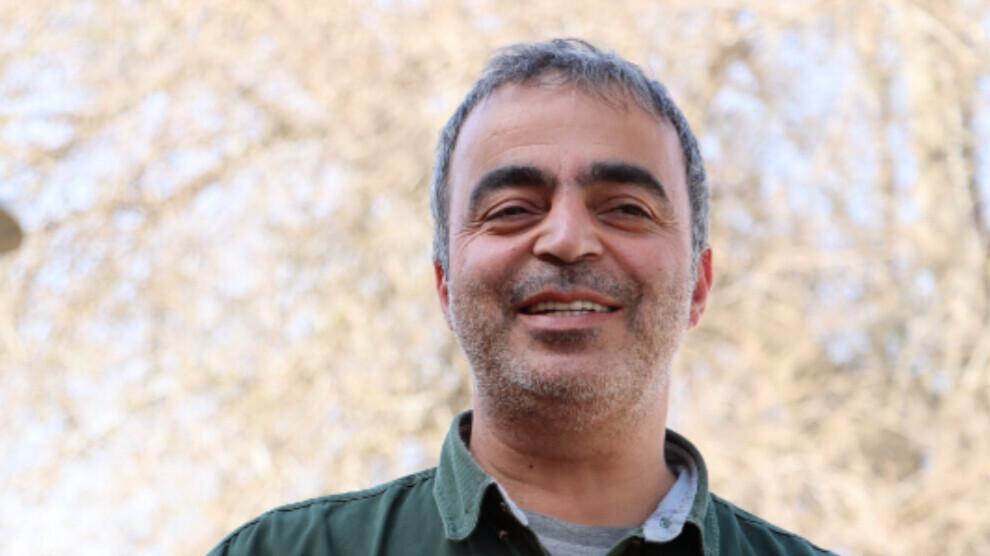On day 114 of hunger strike, Ecevit Piroğlu's life is in danger
Ecevit Piroğlu, who was arrested in Serbia under pressure from Turkey and was not released despite high court decisions, is on the 114th day of his hunger strike.
Ecevit Piroğlu, who was arrested in Serbia under pressure from Turkey and was not released despite high court decisions, is on the 114th day of his hunger strike.

Ecevit Piroğlu, who was arrested in Serbia in June 2011 while travelling from Rojava to Europe and whom Turkey wants to be extradited, continues his hunger strike. The meetings and attempts at the Serbian Embassy for Piroğlu, whose health problems are increasing and who has dropped to 47kg, have also been fruitless. DEM Party Central Executive Board (MYK) Member Musa Piroğlu said, ‘Ecevit can only be released through public pressure.”
Piroğlu, whose case for extradition to Turkey was rejected three times by the Supreme Court of Serbia, has not been released due to the pressure of the Turkish state. Piroğlu's hunger strike, which he started for the second time, has left behind its 113th day. The health condition of Piroğlu, who had previously gone on a 135-day hunger strike against the unlawfulness he has been experiencing, is gradually getting worse. Speaking to ANF about Ecevit Piroğlu's condition, DEM Party MYK Member Musa Piroğlu recalled that Ecevit Piroğlu was arrested in Serbia on the pretext of a red notice issued by Turkey.
Musa Piroğlu said the following about the process: “At the end of the two-year judgement process, the high court ruled that Ecevit did not have the conditions for deportation. In the meantime, he was re-arrested three days after his release from prison through a conspiracy set up by the Serbian government. He was sentenced to one year in prison. A year later, the lower court again ordered Ecevit's deportation and ordered him to leave the country within 15 days. The higher court stayed the deportation. The Serbian government is preventing Ecevit from leaving Serbia, citing Turkish pressure as an excuse. During those three years, he went on a hunger strike lasting 135 days. Now, he has been on hunger strike for 113 days and is demanding his release.”
Musa Piroğlu said that Ecevit was kept in the removal centre for a long time and that his health conditions gradually deteriorated due to the lack of medical personnel and infirmary here. “He has been hospitalised for 4-5 days due to international pressure. He is on hunger strike in the hospital, his weight has dropped to 47kg, and he has started to have serious problems with his health values. For the first 50 days, the Serbian government did not even take him to hospital. They took him to hospital after pressure from Amnesty International and the media. Currently, they have accepted to hospitalise him due to international pressure.”
Piroğlu said that international law is suspended and the relations of interest between states come to the fore in such cases. He continued: ‘Due to the pressure of the Turkish government, the Serbian government, which succumbed to interest relations, does not allow Ecevit to move to another country. The pressure of international public opinion must be strong so that Ecevit is released. Ecevit has been in isolation for three years. He is in prison in a foreign country. In the removal centre, he stays with people with no political identity who are trying to seek asylum or move to another country. He has been in unregistered isolation for three years. He lives a life without speaking, without understanding, without agreement. The Serbian health and justice system has no information about the hunger strike. When he appeared in court on the 120th day of his first hunger strike, the court committee realised that he was on hunger strike. The Serbian government has no justification. The Serbs want to give Ecevit back. Extradition to Turkey means that he will be tried with aggravated life imprisonment. The way Ecevit will get out of there will be through public pressure. The life safety of political prisoners is seriously jeopardised. International organisations need to step in.”